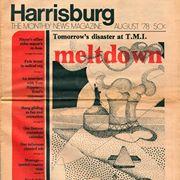PLEASE HELP SAVE INDEPENDENT CAMBRIDGE NEWS
Please join me in contributing to Cambridge Day–an important online newspaper dedicated to covering the city. I’ve taken the liberty of replicating the appeal it posted three days ago at https://www.gofundme.com/f/throw-local-news-a-lifeline-save-cambridge-day .
—Anita M. Harris

Cambridge is on the verge of losing one of its last remaining sources of local news.
The Cambridge staff of the now corporate-owned Cambridge Chronicle was eliminated almost a year ago. Cambridge Day, an online newspaper run by Marc Levy since 2009, has the last full-time staff devoted to covering the city, but will cease publication without immediate community support. With that support, however, Cambridge Day could take a huge leap forward in quality and comprehensiveness.
We need your help now
Cambridge Day has provided local news about schools, city meetings, neighbors in need, development, zoning and construction as well as a calendar of events and goings-on with archives going back some 20 years. Without it, we become yet another community starved for discourse, engagement and connection. Cambridge’s civic life is in danger without an independent local press.
Help us reach our $75,000 goal
We, the Cambridge Local News Matters Advisory Board, are seeking immediate “breathing room” funding to keep Cambridge Day going while Marc develops a long-term plan for its sustainability and growth. Marc and Cambridge Day need to recruit an experienced publisher, survey the community and recruit a board of directors, among other steps.
Please contribute today!
The future of our local news depends on it. Please make a donation here. And please tell your friends and fellow citizens.
And in the spirit of community-based news, please share your ideas about what you’d like to read about in your local news and features you would find useful. Write us at cambridgedaymatters AT gmail DOT com.
Taking this community news survey could help in planning too! It includes questions about what residents would most like to read and learn about in their local news and what issues matter to them most. Take the survey here.
Thank you for your support. Here’s to keeping us collectively informed and engaged.
Cambridge Local News Matters Advisory Board
Susanne Beck – journalist, former executive of a foundation and nonprofit, investment banker
Rick Harriman – former chair of the Cambridge Community Foundation, innovation consultant
Mary McGrath – award-winning public radio and podcast producer, a journalist for 30 years
Bob Simha – past director of planning for MIT for 40 years
Kristen Wainwright – former literary agent and marketing and ad executive
Cathie Zusy – civic activist, former president of the Cambridge Club and former museum curator
HERE’S THE GO FUND ME LINK :
https://www.gofundme.com/f/throw-local-news-a-lifeline-save-cambridge
—Anita M. Harris
Anita M. Harris is an author, photographer and communications consultant based in Cambridge, MA. Her latest book, The View From Third Street, , is a memoir/social history of her experiences cofounding the Harrisburg Independent Press in Harrisburg, Pennsylvania, during the 1972 Trial of the Harrisburg–just before Watergate.
New Cambridge Observer is a publication of the Harris Communications Group, also in Cambridge.



 Newspapers have long kept tabs on the changing world–but have themselves been slow to modernize. To flourish these days,
Newspapers have long kept tabs on the changing world–but have themselves been slow to modernize. To flourish these days,